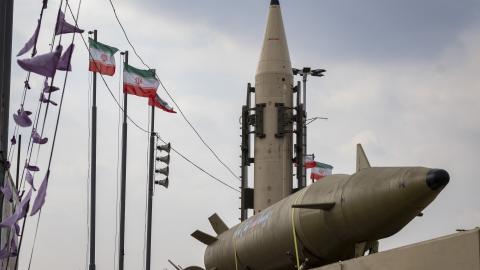Israelis and Palestinians will resume direct peace negotiations Thursday—the first such talks in 20 months. The key to unlocking the Mideast conflict rests in accepting simultaneously more equality and more inequality for Israelis and Palestinians.
The most obvious initial need for asymmetry concerns military forces. Israel must maintain the strongest army in the region if war is to be avoided and it is to survive. The Palestinian state, on the other hand, must be significantly demilitarized. Anyone who would argue that a "true" two-state solution excludes limits on Palestinian military forces is making the two-state solution a nonstarter. Also, Israel needs special rules to protect its international airport, which is just seven miles from what is expected to be the future border with Palestine. It does not promote peace to make Israel more vulnerable until Palestinian and Arab feelings toward Israel have warmed.
A major example of where more symmetry is appropriate, although almost all diplomatic discussions now assume gross asymmetry, is the standard view that while Palestinian Arabs should be allowed to continue living in Israel—where they constitute about 20% of the population—Jews will not be allowed to live in a future Palestinian state.
This asymmetrical demand of tolerance from Israel while accepting a judenrein Palestine is based on historical experience. Israel has from its birth accepted Arabs and granted them full civil rights—both resident Arabs and immigrants. Most Arab countries, on the other hand, have essentially expelled their centuries-old Jewish communities. Some 750,000 Jews living in Arab countries lost their property and their homes following the creation of Israel. And in those parts of the Palestinian mandate occupied by Arab armies in 1948, including the Jewish Quarter of Jerusalem, all Jewish residents were removed and Jewish religious sites were systematically destroyed.
Far from questioning the morality and justice of the apparent Palestinian demand that their state should be free of Jews, the Western world has accepted the Arab argument that Jewish "settlements" on land that is expected to become part of the Palestinian state are an obstacle to peace. What is the special justification for Palestine, unlike the rest of the world, to be rigorously free of Jews? Why shouldn't Jews live in Palestine as Arabs live in Israel?
Many people will no doubt argue that it is unrealistic to think that formerly Israeli settlements could continue to house Jews in a Palestinian state. But this view is based on the current situation of the Palestinians. It would be much harder to take such a view after several generations of peace.
As the Palestinians experience peace and self-government—and hopefully years of democracy and free speech—and as the memories of the deadly struggle with Israel and the anti-Israel incitement recede into the past, and as more of the Muslim world accepts the need to live in the world with non-Muslims, the differences between the conditions and needs of Israel and of the Palestinians will become less. The need for asymmetries in the arrangement between them will become smaller.
Therefore, given the currently rather different sociological and political conditions and interests of the two parties, we may need to think of the two-state solution in two separate time periods with different rules and perhaps different borders during each stage.
Special rules for Palestine, and perhaps some of the borders, that are necessary now—and therefore temporarily just—should be understood as provisions that will be appropriate to change in the future, when the conditions that make them necessary no longer exist. When Palestine is like a European country, Israel should live with it as European countries live with each other—but that is not now, nor will this peaceful coexistence immediately follow the end of the current peace process.
The key to a plausible two-state solution is understanding which rules need to be the same for both states and which rules must, at least for now, be different. Thinking realistically about the terms of a two-state solution depends on having a sense of time—of the differences between the current condition of the Palestinians and what they are likely to become in the future.














